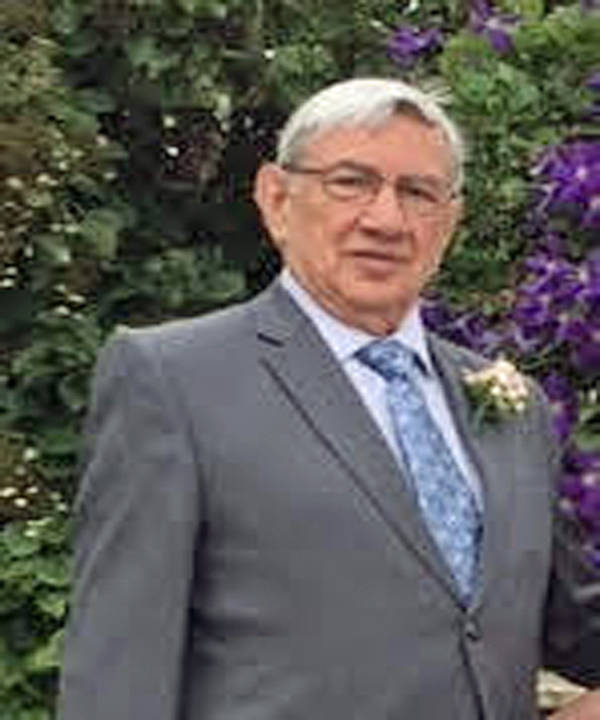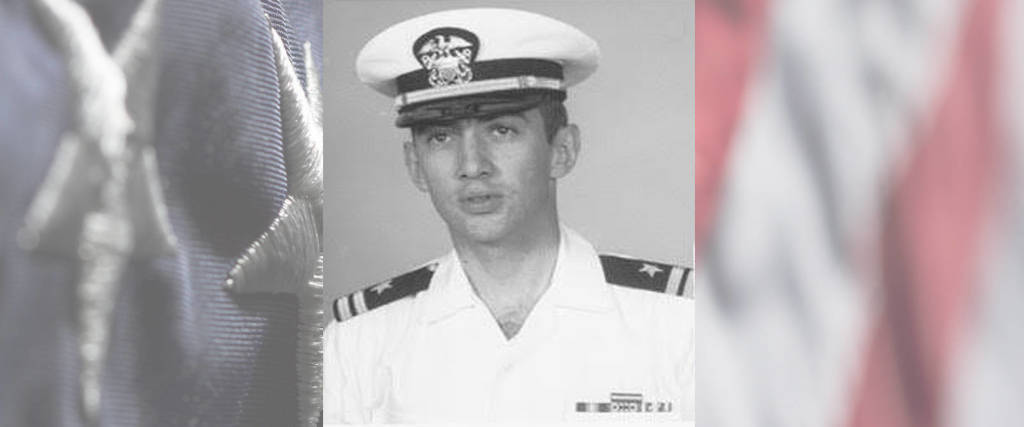U.S. Navy Vietnam War Oak Forest, IL Flight date: September, 2019
By Sharon Skonie Martin, Honor Flight Chicago Veteran Interviews Volunteer
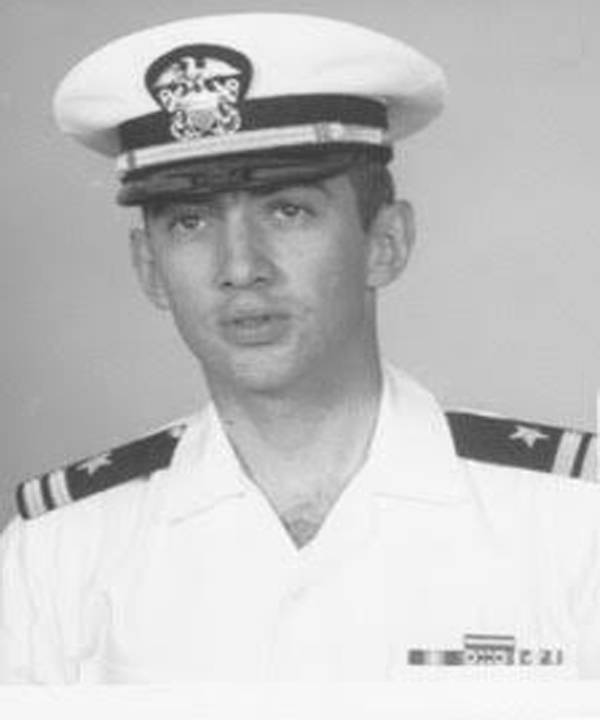
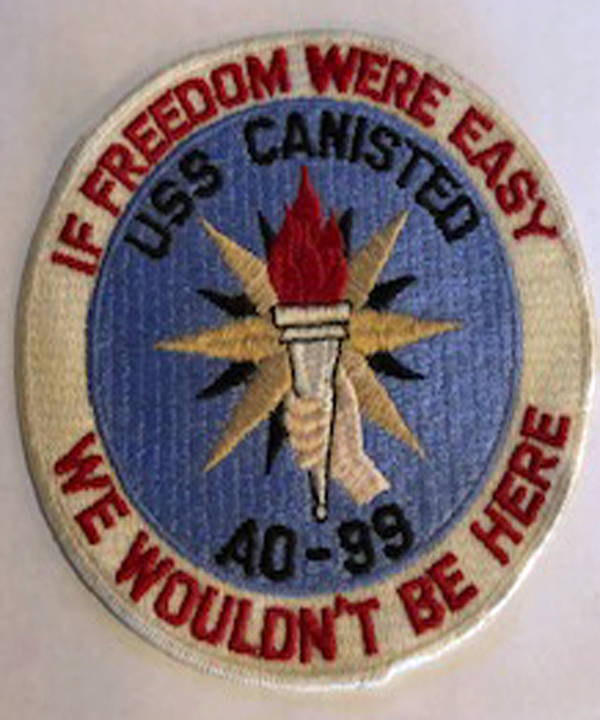
“I know what it’s like to be shot at and missed.” That’s how Bill Siska described part of his experience in the U.S. Navy stationed in Nha Be, Vietnam. One specific episode that illustrates this quote is when the Viet Cong were attempting to cross a river late at night. “It was like Christmas,” Bill said of the firefight. “There were red and green tracers” flying back and forth. The U.S. forces used red tracer ammunition and the Viet Cong used green.
Serving in the Navy was Bill’s Plan B, as he had initially signed up for the Air Force, but was disqualified because he suffered from hay fever. “The Navy Recruiter offered me Officer Candidate School (OCS) and I took it.” Bill served from 09/1965 to 09/1969, graduating from Officer Candidate School (OCS) in May, 1966. As an Ensign, he became a gunnery officer “on a big floating gas station” — the USS Canisteo (AO-99), a fleet oiler. When this ship was sent to dry dock in 1966 to undergo “jumboization,” he attended River Patrol Boat School in Vallejo, California. In May of 1967, he was assigned to the River Patrol Forces in Nha Be,Vietnam as a tactical operations center (TOC) watch officer and served in Vietnam until May of 1968. The River Patrol Forces’ mission was to protect the main shipping channel to Saigon, as members of the “Brown Water Navy.”
Except for a few cousins in the Navy and the Army, Bill says there are no long bloodlines of military service in Bill’s family. Bill was born and raised along with his two brothers and one sister in the South Deering neighborhood of Chicago. As Bill described it, in terms of diversity, his neighborhood was a “mini UN.” Bill’s father worked in a local steel mill, “pouring the hot, molten steel into ingots.” In addition to her family responsibilities, Bill’s mother worked as a cook for the priests in the monastery associated with Mendel Catholic High School in Chicago. Prior to enlisting, Bill had earned a Bachelor of Arts degree in Business Management from St. Joseph’s College in Rensselaer, Indiana; he would put that degree to use in the banking industry later on in his life.
Danger was part and parcel of Bill’s military service because, “I was young and stupid,” he explained. The vessels he was on would “sweep the river from the South China Sea to Saigon” looking for interdicting Viet Cong activity.. Bill served during the Tet Offensive which began in January of 1968. Well-known as the turning point of the war, his unit received the Presidential Unit Citation for exemplary service during this conflict.
“We had two UH-1B Huey helicopter gunships, day and night, at the ready. We could direct artillery fire.” The gunships were equipped with rockets and machine guns. “On one night run, I was in the light ship — the first to be shot at.” The helicopter gunships would answer calls for help from U.S. forces downstream. Bill worked eight-hour shifts daily out of the TOC observing approximately 30 river patrol boats. “Every day was the same as the day before.” Except for the day the base came under mortar attack. The liquor cabinet in the Officers Club got hit. Bill and his comrades “had to inventory the cabinet, to make sure nothing was bad…we got rip-roaring drunk.” Bill said “In all seriousness, enemy fire could have hit the fuel tanks instead.”
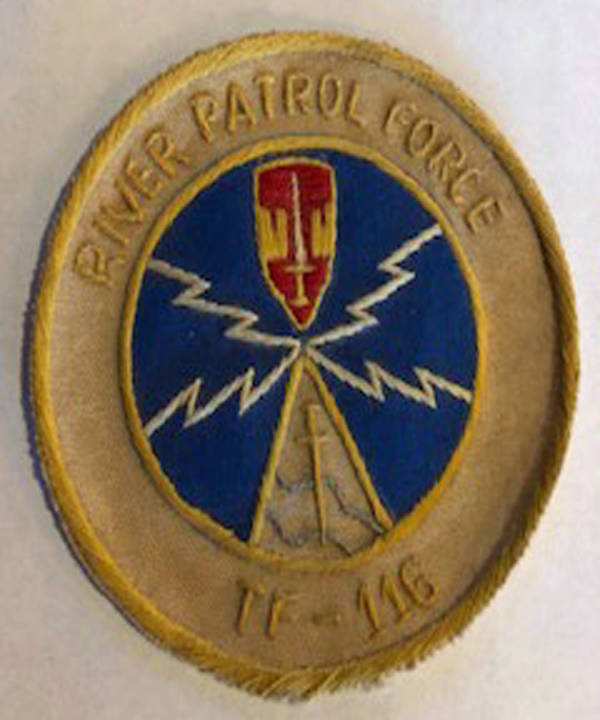
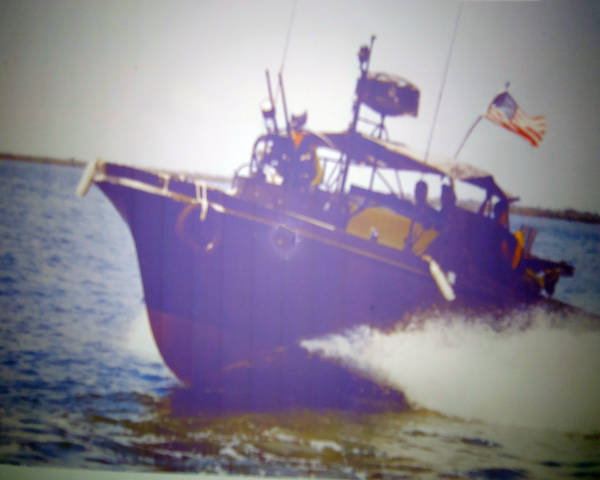
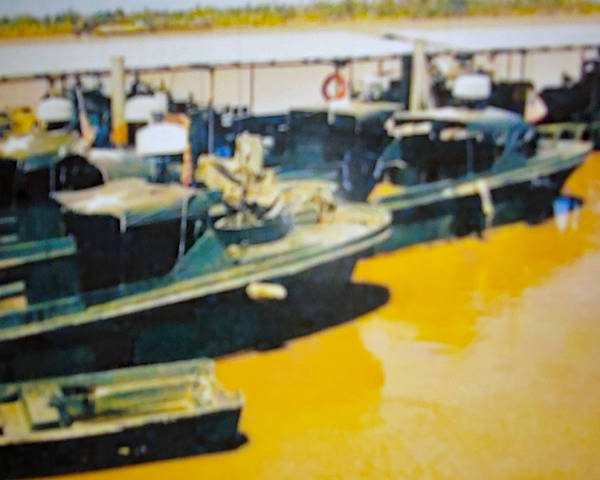
Bill and his fellow sailors claim that they made a little bit of history while serving. The Rung Sat Special Zone “was a parcel of land that the Navy had tactical control of,” Bill said, “mainly because 90% of it was underwater at high tide.” According to Bill, “this arrangement was the first time in all of wartime military history that the Navy controlled a piece of land.”
Following his service in Vietnam, Bill was assigned to the U.S. Naval Exam Center in Great Lakes.
Bill worked for the former First National Bank of Chicago for nearly 10 years, followed by 10 years working for other banks. Bill then worked for the Federal Deposit Insurance Corporation for nearly 10 years, where he “assisted in closing banks.” He became an assessment auditor, “ensuring that banks paid the proper amount of deposit insurance premiums.”
When Bill worked as a U.S. Department of Justice auditor, he discovered that a private prison was overcharging the U.S. Marshals Service by $14 million. He retired from the U.S. Department of Housing and Urban Development in 2011.
Bill said if given the chance, he would absolutely visit Vietnam today in a heartbeat. “I’d like to see what’s taken place in the last 50 years. I’d like to see what’s left of the base, if anything. They turned the river into freshwater, using a desalination plant.” Bill’s son showed him pictures from a business trip he took to Vietnam, piquing Bill’s interest.
Speaking of Bill’s family, he’s been married to Joan for 50 years. They got to know each other through group dating with three other couples. Bill is keeping busy these days with his two grandchildren, plus playing golf and fishing.
